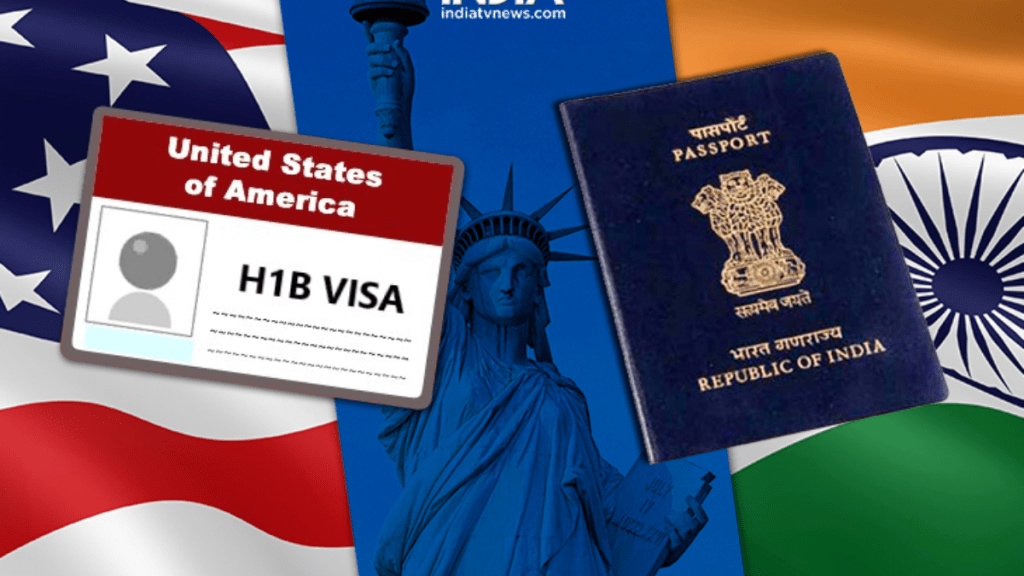Several major US employers have paused or reduced their sponsorship of H-1B visas for certain positions following a recent policy change from President Donald Trump’s administration.
The administration announced that employers would now be required to pay a $100,000 fee for new H-1B applications.
Officials said the reform was aimed at continuing to attract top global talent while ensuring the system is not exploited to import cheap labour and reduce American wages.
The policy has faced criticism and legal challenges, with opponents questioning the president’s authority to impose the new fee and warning that it could damage the country’s competitiveness in technology and innovation.
Central to the backlash is a lawsuit filed by the US Chamber of Commerce which argued that the $100,000 charge would be “cost-prohibitive for US employers, especially start-ups and small and midsize businesses.”
Trump announced in September that the new fee would be part of the H-1B visa application process, which allows US companies to temporarily hire foreign workers in specialised fields.
The administration later clarified that the fee applies only to new applicants, not current H-1B holders or renewals.
USCIS confirmed that the $100,000 payment applies only to visa applications filed on or after September 21 for workers located outside the U.S. who do not already hold H-1B status.
The rule also excludes individuals switching from another visa type, such as F-1 student visa holders moving to H-1B status.
In response, several companies have announced plans to suspend visa sponsorships or scale back hiring for roles dependent on H-1B visas.
Cognizant
The IT consulting firm, founded in India and headquartered in New Jersey, has not made a direct statement regarding the new H-1B policy. However, in a job listing for a software engineering position in South Carolina posted on October 14, the company stated it would “only consider applicants for this position who are legally authorised to work in the United States without the need of employer sponsorship.”
A company representative told Newsweek that Trump’s proclamation “is expected to have limited near-term impact on our operations.”
They added: “Cognizant’s scale and global footprint provide multiple levers to continue to serve our clients in the US and globally.”
Intuitive Surgical
In late September, Business Insider reported that California-based med-tech firm Intuitive Surgical had halted sponsorship for applicants requiring H-1B visas.
Notices attached to more than 100 job listings on the company’s website—spanning various roles—stated: “Due to the uncertainty caused by the recent US executive proclamation, we are temporarily pausing offers to candidates who require H-1B visa sponsorship.”
Tata Consultancy Services (TCS)
Tata Consultancy Services, one of the largest H-1B sponsors, announced it would no longer hire through the program.
CEO K. Krithivasan told the Deccan Chronicle and Times of India that the company already has a sufficient number of H-1B employees in the US and will now prioritise hiring local talent.
“On H-1B, we have significantly localized our workforce in the US. We believe our business model will be able to adapt quickly to any changes in immigration policy,” Tata’s chief human resources officer Sudeep Kunnumal said on a recent earnings call.
Walmart
Walmart, which employs an estimated 2,400 H-1B holders, has also paused hiring candidates requiring visa sponsorship. The development was first reported by Bloomberg, citing anonymous sources familiar with the decision, and later confirmed by the company to the BBC.
A Walmart spokesperson said the retailer remains “committed to hiring and investing in the best talent to serve our customers, while remaining thoughtful about our H-1B hiring approach.”
The $100,000 H-1B visa application fee officially took effect on September 21. According to USCIS, applicants must submit the payment through pay.gov before applying for the visa.
The agency also reported that it has already received enough petitions to reach both the regular 65,000 cap for H-1B visas and the 20,000 cap for US advanced degree exemptions for the 2026 fiscal year, which runs until April next year.

